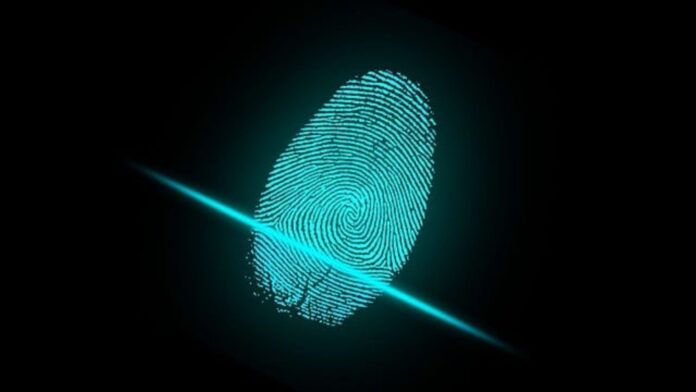In today’s digital era, ensuring security and trust has become increasingly dependent on identity verification. From setting up a bank account or joining a new social media platform to accessing sensitive information, confirming one’s identity is now an essential prerequisite.
However, conventional methods like passwords and PINs no longer suffice in safeguarding against fraud and protecting user privacy. As technology advances, the realm of identity verification continues to transform. This article delves into five technological trends that are reshaping the future of ID verification.
1. Biometric Authentication
Biometric authentication is revolutionizing ID verification by incorporating methods like fingerprint recognition, facial recognition, and voice recognition. Unlike traditional passwords, biometric data is unique to each individual, providing an incredibly difficult-to-forge or steal means of identification. This technology offers a seamless and highly secure approach to accessing devices, applications, and services.
In addition, the increasing prevalence of smartphones equipped with built-in biometric sensors has significantly enhanced user convenience in utilizing these technologies. With companies progressively integrating biometric authentication into their systems, both security and user experience are being improved.

However, it remains imperative to address privacy and data protection concerns when implementing biometric verification systems. It ensures that sensitive information is carefully handled and safeguarded.
As biometric technology progresses, we can anticipate the emergence of more robust and precise methods for verifying identity. Vein pattern recognition and heartbeat authentication represent exciting innovations that are poised to bolster the role of biometrics in shaping the future of ID verification. These advancements hold great promise in enhancing security and accuracy.
2. Blockchain-Based Identity
Blockchain technology extends beyond cryptocurrencies and has made significant strides in the realm of identity verification. Through its decentralized and immutable ledger, blockchain provides a secure repository for storing user identities. This distributed approach enhances security, contrasting with the vulnerabilities found in traditional centralized databases susceptible to data breaches.

With blockchain-based identity verification, individuals gain enhanced control over their personal information. They are empowered to grant or revoke access to their data as per their requirements, thereby mitigating the risks associated with identity theft and fraud. Moreover, the elimination of intermediaries streamlines the verification process, significantly accelerating its efficiency.
Blockchain-based identity also offers a notable advantage – the potential for a universal and interoperable solution. Users can eliminate the hassle of managing multiple usernames and passwords by having a single digital identity recognized across multiple platforms. However, scalability and regulation pose challenges that must be addressed as this technology evolves.
Blockchain-based IDV is currently in its early development stages. However, it possesses the potential to revolutionize identity verification methods in the future.
3. AI-Powered Identity Verification
Artificial intelligence (AI) is revolutionizing the field of identity verification, playing a vital role in shaping its future. By employing advanced algorithms, AI can analyze massive volumes of data and identify potential patterns associated with fraudulent behavior. This extraordinary ability proves especially beneficial in the realm of financial services, where preventing identity theft and account takeover holds utmost importance.

AI-powered identity verification systems can simplify the user onboarding process. They perform real-time document verification and facial recognition, diminishing the challenges associated with signing up for online services. Additionally, AI can constantly monitor user behavior, promptly identifying any suspicious activities and strengthening security measures.
Despite its potential, AI-powered identity verification encounters challenges regarding algorithmic bias and privacy concerns. Achieving a delicate equilibrium between security and user privacy emerges as a pivotal consideration in the continued development of this technology.
4. Mobile ID Solutions
The advent of smartphones has spawned mobile ID solutions that harness the potential of these devices for identity verification. Mobile IDs function as digital replicas of physical identification documents, like driver’s licenses and passports, securely stored on a user’s smartphone. These digital IDs can be effortlessly presented and authenticated via a dedicated mobile application.
Mobile ID solutions offer numerous benefits. Users find them highly convenient as they always carry their smartphones, making access easy. In terms of security, mobile IDs have an edge over physical IDs due to features like biometric authentication and encryption. Additionally, mobile IDs are designed to be tamper-proof, which significantly enhances their resistance to counterfeiting.
The adoption of mobile IDs is gaining momentum. Both governments and private sector organizations are now exploring their potential. However, key challenges need to be addressed for mobile IDs to become a universal and widely accepted form of identification, namely interoperability and standardization.
5. Zero-Knowledge Proofs
Zero-knowledge proofs are cryptographic techniques that enable one party to demonstrate their possession of specific information to another party without disclosing the actual information itself. This groundbreaking capability carries significant implications for identity verification. By utilizing zero-knowledge proofs, individuals can authenticate their identities while safeguarding sensitive data from exposure.
For instance, a user can verify their legal drinking age without disclosing their birthdate. This privacy protection level is vital, particularly in countries where data breaches are rampant. Zero-knowledge proofs offer an effective balance between security and privacy.
The adoption of zero-knowledge proofs is still in its early stages. However, it shows tremendous potential for the future of ID verification. This technology holds particular significance in fields where privacy is crucial, such as healthcare and finance.
Conclusion
The constantly evolving landscape of identity verification is marked by the emergence of new technologies. The five essential technological trends discussed above are reshaping the future of ID verification. These trends hold great potential in making identity verification faster, more efficient, and highly secure while preserving privacy. Moreover, they expand the possibilities for verifying identity across a wider range of contexts.


